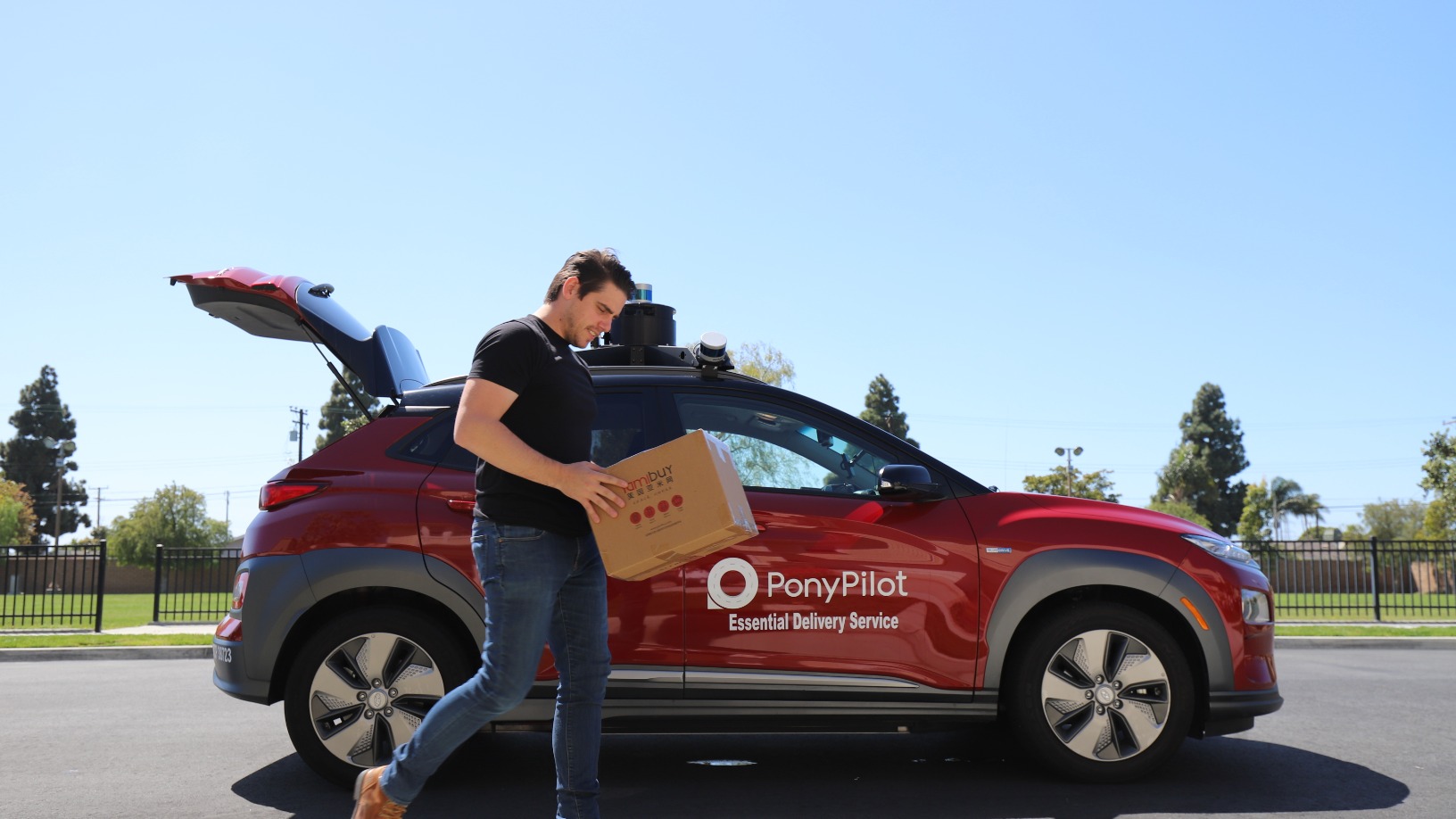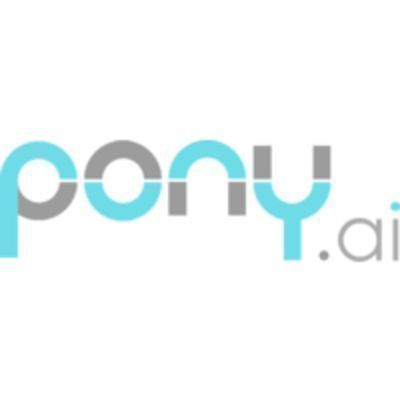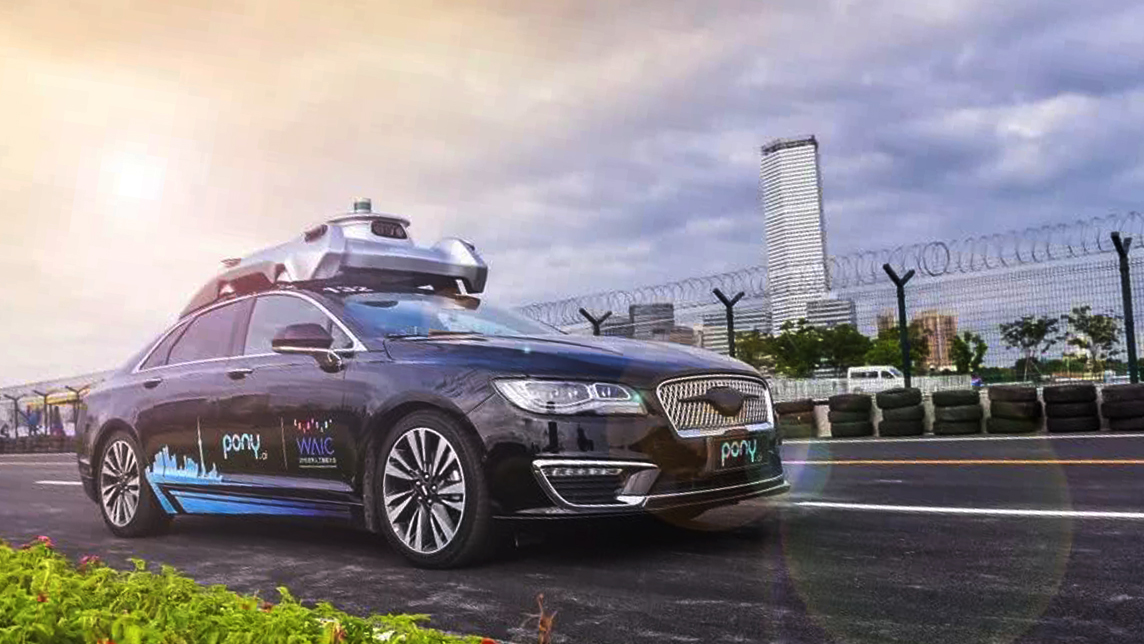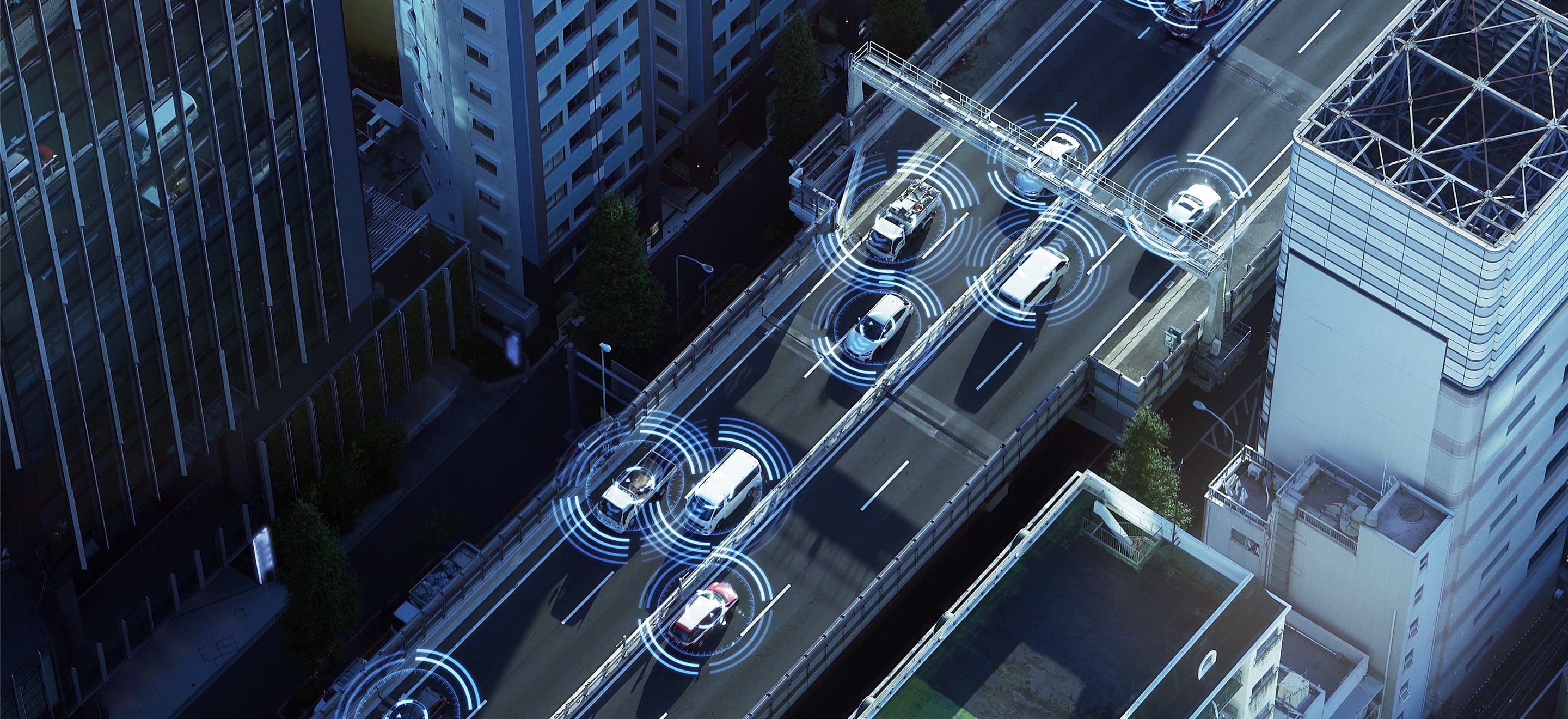As more homebound Americans turn to online shopping during the Covid-19 pandemic and demand for contactless delivery has never been more pressing, Guangzhou- and Fremont-based self-driving unicorn Pony.ai has quickly converted its robotaxi fleet to offer last-mile e-commerce delivery.
On April 20, Pony.ai announced a partnership with the Los Angeles-based e-commerce platform Yamibuy to deliver purchases to local customers in Irvine, California in an autonomous and contactless way. The move came after Pony.ai announced in March a three-week suspension of its public robotaxi service in Fremont and Irvine due to Covid-19.
Most e-retailers, including Amazon, are struggling to fill skyrocketing orders and are hiring more warehouse staff and delivery drivers. Others are setting their sights on autonomous driving vehicles due to the reduced risk of infection during deliveries.
“We quickly converted our existing robotaxi fleet to repurpose them for goods delivery,” said Pony.ai CEO and co-founder James Peng. “I am thrilled that we are able to help the local community by delivering much-needed food and packages to the doorsteps of residents.”
Each of the 10 self-driving vehicles will collect packages from a local distribution center and then drive directly to a customer's address. Customers can choose to pick up their purchases from the truck themselves or have the safety driver leave them on doorsteps.
According to Pony.ai, each robotaxi can carry 10 to 20 packages at a time and is expected to deliver about 100 orders a day.
Attempts at commercialization
Currently, Pony.ai is not allowed to charge Yamibuy fees for its delivery service, which will run through summer in Irvine, without a commercial use permit from the state of California. However, the startup is hoping to change that: it is in talks with the Department of Motor Vehicles to try and find a solution.
Pony.ai has described the tie-in with Yamibuy as a milestone in its commercialization efforts, which, according to a press release, are “demonstrating the versatility of its autonomous driving technology to transform mobility and logistics.”
Nor is this the company's first attempt at commercializing its autonomous driving technology for scenarios other than ride hailing. Earlier in April 2019, Pony.ai also disclosed that the startup had set up a 10-person team to work on long-haul autonomous trucking.
James Peng made it very clear earlier at the beginning of 2019 that the robotaxi service is the ultimate goal of Pony.ai and will become its ultimate revenue stream. The startup hasn't give up other commercialization avenues, however, despite focusing on autonomous ride-hailing.
Partnership with automakers
Instead of making vehicles itself, Pony.ai has chosen to partner with automakers from the very beginning, including China’s largest EV maker BYD, its second largest carmaker GAC Group, and global manufacturers Toyota and Hyundai. The list will continue to grow according to the autonomous driving startup.
Prior to the pandemic, Pony.ai joined Hyundai in November 2019 to offer driverless ride-hailing service BotRide in Irvine – the first of its kind in California. Operating a fleet of 10 Hyundai Kona electric SUVs equipped with Pony.ai’s latest sensors and autonomous driving system, the pilot program had handled over 70,000 orders by the end of that year.
With BotRide, individual riders in the city were able to hail an autonomous vehicle or participate in a shared carpool for free through the app developed by the startup in collaboration with Via, which handles booking and passenger assignment. The cars would automatically verify onboard passengers and direct them to nearby stops for pickup and drop-off.
Pony.ai's partnership with carmakers can be traced back to February 2018 and its collaboration with GAC Group, whose Chuanqis SUVs were deployed in the startup’s autonomous ride-sharing fleet in the Nansha district of Guangzhou. The pilot program, named PonyPilot, made Pony.ai the first company to offer driverless rides on public roads in China. The fleet has now expanded from 20 to 100, operating from 5am to 12pm within a 100-sq-km area and with 100 pickup/drop-off locations in the district.
In August 2019, Pony.ai struck up a partnership with Toyota Motor Corporation for a pilot project to test self-driving vehicles – Lexus RX models equipped with Pony.ai’s autonomous driving system – on public roads in Beijing and Shanghai. Six months later, Pony.ai raised $400m from Toyota as part of its $462m Series B funding, which brought its valuation to $3bn. The investment is earmarked for expanding their existing partnership by exploring more possibilities in mobility services.
According to Peng, partnership with automakers will help speed up autonomous vehicle commercialization and his startup is on the right track. Pony.ai has so far completed more than 100,000 rides in China and the US cities since its founding in 2016.
“It is only a matter of time before driverless cars take us to work and our children to school,” said Peng. “If I had to give a number, I’d say probably within five years.”













